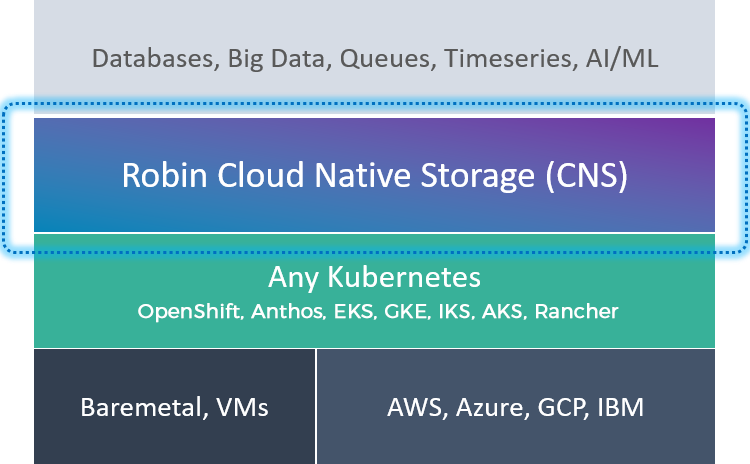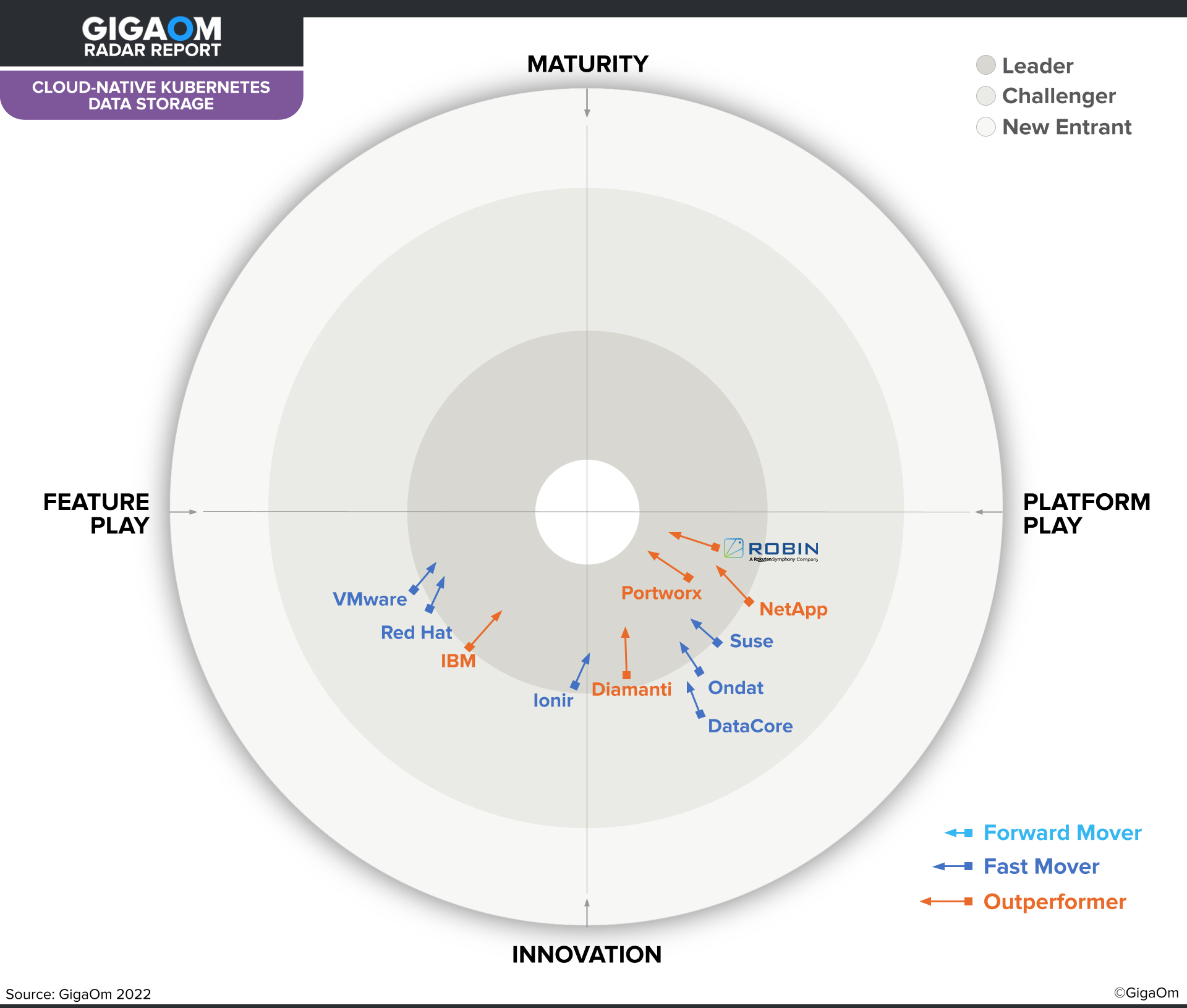




Leader and Outperformer
CNS shines with its advanced data services
Robin.io is an innovative, application-aware cloud-native Kubernetes solution with enterprise-grade capabilities. The solution can run anywhere, either on-premises (bare metal, virtual machines) or on all major public cloud providers. Acquired by Rakuten Symphony in early 2022, Robin.io is continuing its strategy to serve both the enterprise and provider market segments.
Robin Cloud Native Storage (CNS) has been rated as a Leader and Outperformer in the 2022 GigaOm Radar for Cloud-Native Kubernetes Data Storage.


Rated Exceptional: Outstanding focus and execution against the following parameters and evaluation criteria
- Ideal for small, medium, large, and ISP/MSP markets
- Advanced (CSI) integration
- Deployment models
- Advanced data services
- Control plane architecture
- Developer experience
- Visibility and insights
- Architecture
- Scalability
- Flexibility
- Manageability
- Performance
Highlights of 2022 GigaOm Radar for Cloud-Native Kubernetes Data Storage
- Robin.io delivers a comprehensive, feature-rich, enterprise-grade experience
- Uncompromising adherence to cloud-native development and deployment
- Advanced data services and application-awareness capabilities
- Robin CNS discovers and pools local disks of any type on Kubernetes cluster nodes, but can also pool storage capacity from cloud disks and SAN systems.
- CNS delivers a resilient architecture and fast-failover capabilities.
- Enables bare-metal performance, live data rebalancing, and QoS
- Multiple replication modes are supported, with awareness at multiple levels
- Advanced placement and rapid deployment capabilities
- Supports snapshots and application-consistent, incremental forever backups.
- Its backup solution has recently opened up to support non-Robin storage.
- Supports data compression, object storage, and per-volume encryption
- Improved monitoring, visualization, and observability capabilities
- Couples with Robin.io’s Kubernetes management solution to address edge use cases
